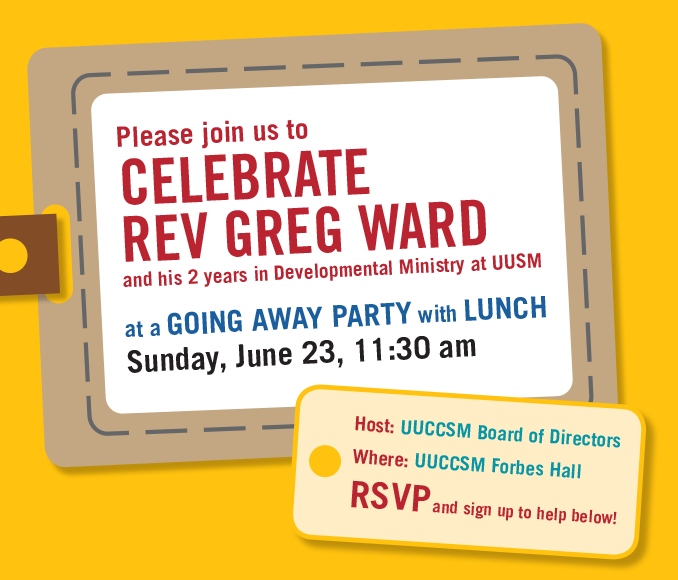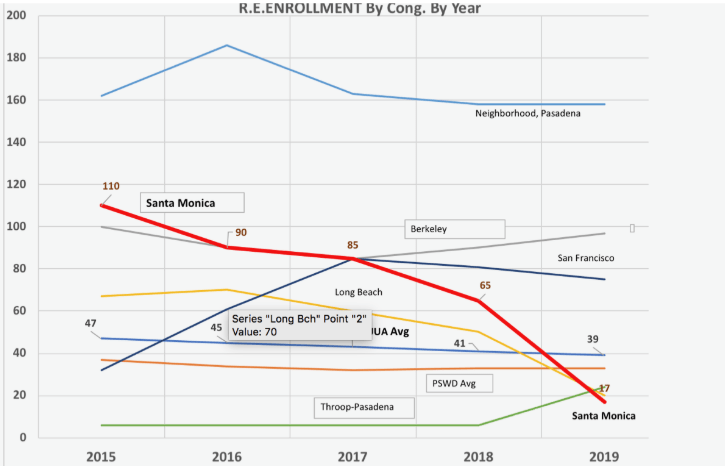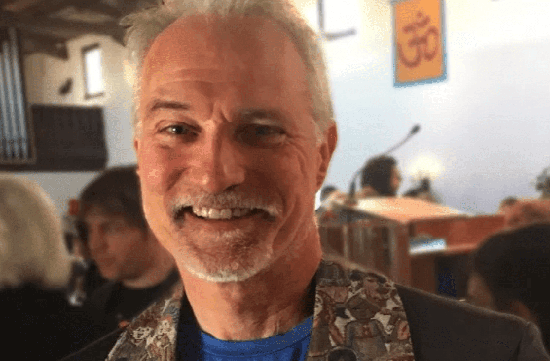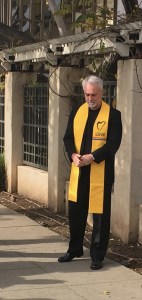 To the Glory of Life: Curiosity
To the Glory of Life: Curiosity
Dear Friends,
They say that ‘curiosity killed the cat,’ but frankly, that sounds made up. Sort of like the kind of finger-pointing cockamamie story cooked up by a crooked politician. Something in a corrupt communication policy that tells the family of victims some bizarre obfuscation while concealing evidence. It’s what people say who have something to hide.
I would like to slip under the yellow tape and walk around the crime scene for a moment. Snoop about in search of clues. What I’d really like to do is to talk to the cat. Because if there is anyone who, for sure, has the straight poop on what went down in shady town, it’s the cat. But the cat’s dead.
So, of course, what you look for is the next of kin. Those in line for the throne. Whoever was hanging out with the cat around zero-dark-ten and counting. Like; the best friend. Except cats don’t really have best friends. They’re too aloof for sycophants, and no one whose living is made off other people’s tragedy owns a cat. Best friends are associated with dogs; i.e. “man,” (sic) which, as all know, are notoriously unreliable when it comes to giving the low down on high jinx.
So, I don’t think it was curiosity that did the killing. At least, not without some help. But let me confess. Because, truth to tell, I have some bias.
I’ve known Curiosity for a long time. Curiosity is the first born of an unlikely pairing of personalities. A whirlwind romance between Wonder and Worry. She got one parent’s imagination and the other’s darting eyes. When she was four, she got into long discussions with her Uncle Reason, who kept trying to explain the universe so that everything made sense. But each time he came up with a perfect answer, she countered with an even more perfect question. And always the same one: “Why?” Eventually, Curiosity backed Reason into a corner and, out of exasperation said, “Because God said so!! That’s why!!” Surprised even him, and resulted in Reason enrolling in seminary where he eventually become a Unitarian minister.
Curiosity was married numerous times. She couldn’t help it. And each time she married, she had a child. She met Fear when she was young and had a son, Anxiety, who became a detective. She left Fear and met Anger with whom she had a second son, Judgment, who worked in a courtroom. She fell deeply in love with Confusion, but while on their honeymoon, they got separated and never found each other.
After marrying Service, she had a daughter, Justice, who became an activist. And after a liaison with Logic, she had another daughter, Intrigue.
But then she fell head over heels for Love. They had twins: Honor and Reverence.
When the story broke about the cat’s demise, Curiosity was taken into custody. All her children gathered around her. Each swore vehemently that their mother could never kill anything. After all, they said, she deeply resisted the finality of endings.
The trial is coming up. So, it behooves all of us to look back on our affairs with curiosity. Consider the testimony of her children and all who’ve known her. They will tell you that curiosity simply allows one to go deeper and become more of who they are. If you begin with Fear or Anger, Curiosity will find ways to see, find, and validate more of the same. But in situations where Curiosity becomes the companion of Love, the result is Beauty, Appreciation, Generosity, Peace, Gratitude, Excitement, Warmth, and Hope. Cat thrived amidst all these things.
Think hard before you cast Judgment and put Curiosity away. She is one of the most important characters to have in your team. Especially if you are trying to find you way to a place you’ve never been. Or find your way back to someplace you can’t quite remember.
To the Glory of Life.
A Pastoral Letter from Rev. Greg: PASTORAL ANSWERS TO R.E. QUESTIONS

April 19, 2019,
Dear UUSM Friends and Friends of UUSM,
On Monday, you received a message from our Director of Religious Education and our President, Jacki Weber, sharing the news of Kathleen’s resignation as our Director of Lifespan Religious Education. This has felt surprising by some and raised questions by others. And has been the source of some feelings by almost everyone. I wanted to reach out and respond to some of these questions.
Is it true that the proposed budget for next year reduces the time for our Director of Lifespan Religious Education from full time to ¾ time?
Yes, this is true. And speaking for what I know to be true for every board member, this is a source of great disappointment and heartbreak. What is also true is the Board’s efforts to be honest, accountable, and responsible regarding the two realities before them:
1. A $72,000+ deficit in the proposed budget; and
2. Registration for our Children and Youth Religious Education programming that dropped to just 17 families.
These both deserve a little explanation.
First, the deficit is something the Board has been looking at and taking very seriously. When I arrived, we embarked on a plan to address revenue. In formulating the plan we discovered that the congregation has, for some years, been overly dependent on a few very generous families to disproportionately cover the majority of the congregation’s expenses. As this information was discovered and has been shared, a very large number of families have significantly increased their giving. Over the last 2 years, over 100 families have increased their giving – some as much as 10% or more. This is outstanding. In addition, more than 20 families stepped up to create an incentivizing leverage fund (Sustainability Fund) to help bring pledging into a more sustainable range.
Unfortunately, this year also coincided with a couple of our highest pledging families reducing or eliminating their pledges (due primarily to declining health and to family relocation, and not to dissatisfaction). Just three families led to $40K in lost revenue which underscores our over-dependence on too few people.
UUSM has had to draw from reserves (money bequeathed to the congregation by generous members remembering us in their wills) to balance the budget for more than 10 years. The Board recognizes that this is not sustainable and, last year, set a target to get to a balanced budget within four years.
The Board, making some painful but responsible choices made some of the cuts which brought the proposed deficit from approximately $72,000 to approximately $37,500.
The second piece of information that’s important to understand is around the trends in children and youth religious education at UUSM. As you can see from the graph below, Religious Education numbers have gone down each of the last 5 years in a row.
It is known that Religious Education programming in UU congregations has been in decline across the country (4% / yr). That increase has been slightly more rapid in UU Congregations in our district (5% / yr). But the decrease here at UUSM has been at a level far beyond what can be explained by these regional and national trends.
There are currently only 17 children and youth registered and attending our RE program on a regular basis. The high number of professional hours we’d be spending to support so few children and youth is well out of proportion with what other congregations are doing. Reducing professional hours was extremely painful – for the Board making the decision, the RE volunteers, the families receiving the news, and for me sharing it here. And, yet, there’s more that needs to be said.
What’s the impact of this decision?
It’s important and appropriate for us to know that this news has a big impact… for children and youth, families, staff… But the impact for Kathleen is more immediate and personal. After only a brief period of reflection, Kathleen informed us that she would need to resign. Los Angeles is simply too expensive an area to have part-time work as a single parent.
Although disappointed, Kathleen has responded with a high degree of professionalism. She continues to understand and care for UUSM and families and a desire to see what’s best for the program and the church as a whole. Anyone who knows Kathleen would expect or predict no less.
In her letter on Monday, Jacki Weber laid out plans to assemble stakeholders and explore specific ways we can bring in a religious professional that will help us in the kind of out-of-the-box thinking that stimulates and energizes our approach to RE and our ability to constructively respond to this challenge.
Why did this happen?
I’d like to share a couple of other truths worth pondering. The dramatic reduction in families registered in RE is not Kathleen’s fault. Nor can responsibility be attached to the other staff in RE… or the volunteers who teach and serve on the RE committees… or the families… and certainly not the children and youth.
You can look at the graph and note that the numbers began to drop in 2015 – two years before Kathleen arrived. Some of what we are struggling with now is the delayed impact of a conflict that began back then.
I don’t believe that what’s happening now for RE is the end of Sunday School. But it certainly requires our attention. And our willingness to work together.
How is this an opportunity and what can we all do?
What we have in front of us is an opportunity to be really honest and explore some important truths. Some of which include:
Accepting that the world has changed a great deal and we probably need to look closely at what we need to do to change our approach as a congregation doing outreach in order to capture the attention and imagination of our most relevant stakeholders: children and youth and their families.
We’re going to need to reach out and engage these stakeholders and this is not the work that will be successful if we place the onus of responsibility on one person – or even a small cadre. If there’s one lesson we’ve learned from the financial side of the congregation it is that being overly dependent on too few people leaves us less resilient and less successful than we deserve to be. We were successful in raising pledges. We can be successful in raising children and youth. Because, even though we can’t change the fact that we’re growing old, we can certainly respond with a commitment to grow young.
Finally, this is a time for stepping forward and building a broad coalition to move in a common direction. It’s not time to divide into opinion camps. When I came here, that’s what I witnessed: division and intractability. We’ve worked too hard and learned too much to go back to that strategy.
Let’s use our energy constructively. Thoughtfully. Carefully. This is an amazing opportunity. Kathleen has been unbelievably understanding, compassionate and supportive of the program so that the volunteers, teachers, staff – and most of all – the families with children and youth – can be successful, even in her departure. It’s the least we can do for her, for ourselves, and for our future to give our very best.
To the Glory of Life,
Rev. Greg
 Spirit of Love,
Spirit of Love,
 To the Glory of Life: Curiosity
To the Glory of Life: Curiosity




 Live long enough and you will be betrayed. When betrayed, you’ll face the choice of opening up to the heartbreak, the grief and the disappointment – or closing off to the pain. Most prefer to shut down – at least for a little – which makes sense, because pain is… well, painful. But without sitting with some of that discomfort, it becomes hard to let it go. Which makes it hard to re-prime the pump that love uses to give – or receive – love again. If we never really heal, or process through those early betrayals; each new betrayal will not be a ‘simple’ matter of healing the relationship you’re currently in, it will be the complex – even impossible – job of healing every relationship heartbreak you’ve endured to that point. And whether or not our brain wants to acknowledge it, our body keeps score in this game of trust from the moment we’re born.
Live long enough and you will be betrayed. When betrayed, you’ll face the choice of opening up to the heartbreak, the grief and the disappointment – or closing off to the pain. Most prefer to shut down – at least for a little – which makes sense, because pain is… well, painful. But without sitting with some of that discomfort, it becomes hard to let it go. Which makes it hard to re-prime the pump that love uses to give – or receive – love again. If we never really heal, or process through those early betrayals; each new betrayal will not be a ‘simple’ matter of healing the relationship you’re currently in, it will be the complex – even impossible – job of healing every relationship heartbreak you’ve endured to that point. And whether or not our brain wants to acknowledge it, our body keeps score in this game of trust from the moment we’re born.

 To the Glory of Life: About “Mystery”
To the Glory of Life: About “Mystery” To the Glory of Life
To the Glory of Life